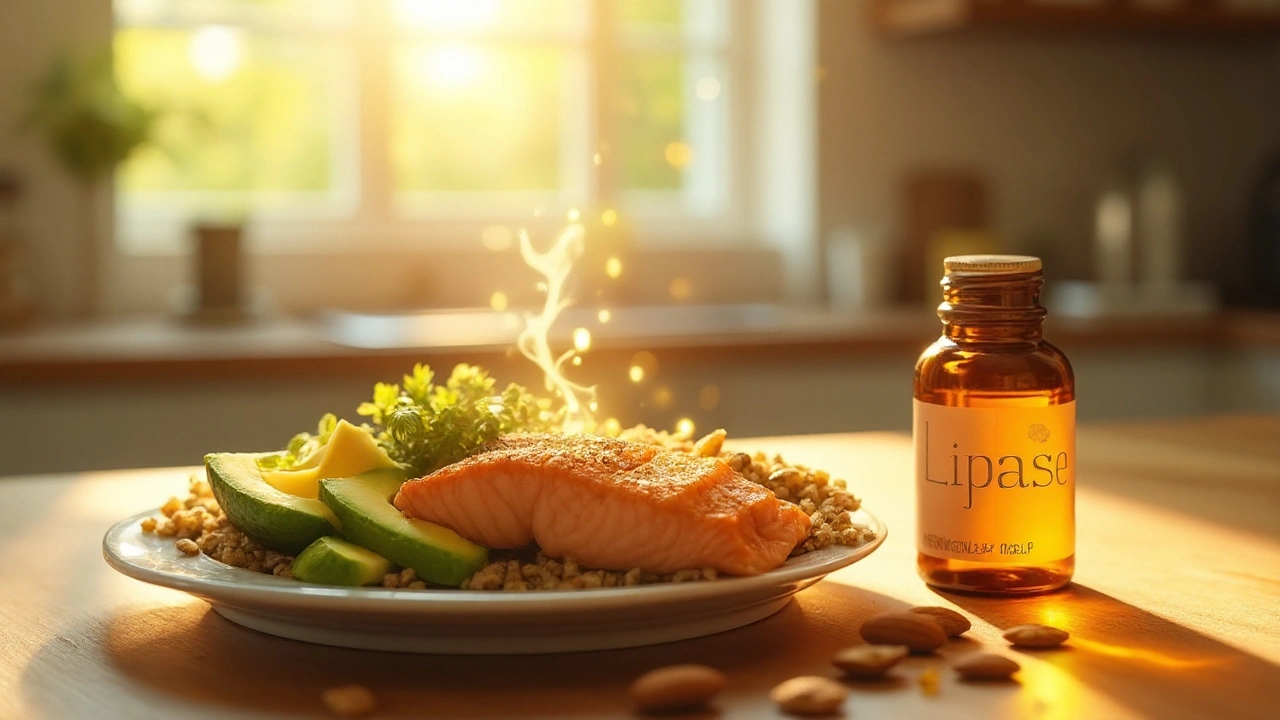Fat Digestion: What Happens When You Eat a Piece of Cheese
Ever wonder why a greasy pizza can leave you feeling heavy? The answer is simple: your gut is working hard to break down the fat. Understanding the steps your body takes can help you avoid discomfort and make smarter food choices.
The Journey Starts in the Mouth
Chewing is more than just shredding food. It mixes the bite with saliva, which contains a tiny amount of an enzyme called lingual lipase. This enzyme begins to split fat molecules, especially if you’re eating dairy. The more you chew, the easier the next steps become.
Stomach Acid and Hormones Take Over
When the chewed food reaches the stomach, gastric lipase adds a bit more fire. The stomach’s acidic environment also signals the release of hormones that tell the pancreas and liver to get ready. You might feel a slight swelling here, but it’s a normal part of the process.Next, the partially digested food, now called chyme, moves into the small intestine. This is where the real action happens.
Bile and Pancreatic Enzymes: The Fat‑Fighting Duo
The liver produces bile, a greenish fluid stored in the gallbladder. When fat enters the small intestine, the gallbladder squeezes bile into the duct. Bile salts act like soap, breaking large fat droplets into tiny particles called micelles. This increases the surface area for the next enzyme.
Pancreatic lipase, released by the pancreas, snaps onto these micelles and splits the fat into fatty acids and monoglycerides. Without enough lipase, you’ll notice greasy stools or belly cramps after a fatty meal.
Absorption: From Intestine to Blood
The tiny fatty acids and monoglycerides cross the intestinal lining and re‑assemble into bigger molecules called triglycerides inside the cells. These are then packaged into chylomicrons—little fat carriers that travel through the lymphatic system and eventually enter the bloodstream.
Once in the blood, cells all over your body can pull the triglycerides out of the chylomicrons for energy or storage. Muscles use them for fuel, while excess gets stored in fat tissue.
Common Issues and Quick Fixes
Sometimes the system gets stuck. Gallstones can block bile flow, and pancreatitis can lower lipase production. Symptoms include bloating, gas, and oily stools. If you notice these often, talk to a doctor.
In everyday life, a few simple habits can keep fat digestion smooth:
- Chew each bite at least 20 times.
- Pair fats with fiber—vegetables, whole grains, or fruit help move food through the gut.
- Choose healthy fats like avocado, nuts, and olive oil over deep‑fried junk.
- Avoid massive high‑fat meals in one sitting; spread your intake across the day.
- Stay hydrated. Water supports bile production and keeps the intestines moving.
By paying attention to these steps, you can enjoy the good stuff—like the flavor of a steak or the creaminess of yogurt—without the uncomfortable after‑effects.
When to Seek Professional Help
If you consistently feel an awful after‑taste, have persistent diarrhea, or notice fat in your stool, it’s time for a medical check‑up. Tests can measure bile flow, lipase levels, and gut health. Early detection of gallbladder or pancreatic issues can prevent bigger problems down the road.
Fat is a vital nutrient, and your body knows exactly how to use it—when you give it the right support. Keep chewing, choose smarter fats, and watch how your digestion improves day by day.

- Aug, 7 2025
- Comments 7